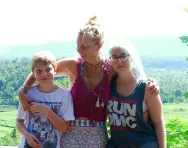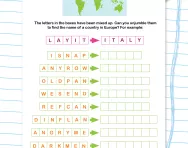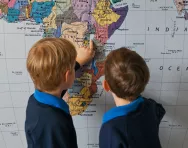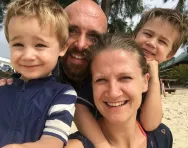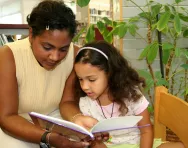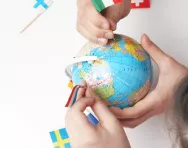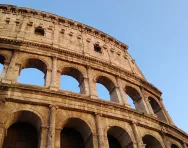TheSchoolRun.com closure date
As we informed you a few months ago, TheSchoolRun has had to make the difficult decision to close due to financial pressures and the company has now ceased trading. We had hoped to keep our content available through a partnership with another educational provider, but this provider has since withdrawn from the agreement.
As a result, we now have to permanently close TheSchoolRun.com. However, to give subscribers time to download any content they’d like to keep, we will keep the website open until 31st July 2025. After this date, the site will be taken down and there will be no further access to any resources. We strongly encourage you to download and save any resources you think you may want to use in the future.
In particular, we suggest downloading:
- Learning packs
- All the worksheets from the 11+ programme, if you are following this with your child
- Complete Learning Journey programmes (the packs below include all 40 worksheets for each programme)
You should already have received 16 primary school eBooks (worth £108.84) to download and keep. If you haven’t received these, please contact us at [email protected] before 31st July 2025, and we will send them to you.
We are very sorry that there is no way to continue offering access to resources and sincerely apologise for the inconvenience caused.
Primary school around the world: Italy
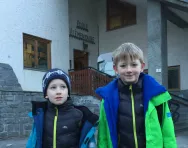
Rachel Herit lives in Champoluc in the Italian Alps. Her sons Ollie, nine, and Jamie, seven, go to the village school.
Our family has lived in the Italian Alps for just over a year. Back home, I worked for the Metropolitan Police in London, but I took the opportunity of a career break, moved to Italy and enrolled my sons in the small village school. This is a bilingual area, so my aim was for them to absorb some Italian, and hopefully French as well. I also used to ski a lot in my twenties, and taught skiing all over the world, so I was keen to pass on my love of the sport, too.

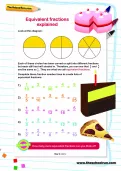
Start a unique learning programme!
- Weekly programme for each school year
- Worksheets sent direct to your inbox
- Keeps your child's learning on track
Children here start primary school (scuola elementare) at the age of six, and go straight into Year 1: there’s no equivalent to Reception. Primary school is five years long, from prima elementare to quinta elementare; at the end of primary children go to "middle" school (scuola media) and then choose more vocational senior school.
Jamie had already done his Reception year in the UK. He’s now in Year 2, with 12 children in his class; Ollie’s in Year 4, and there are 17 in his class. The school gave them both extra help with Italian when they started, and were really kind while they were settling in. Their teachers don’t speak much English, but I speak French, so that’s our main method of communication.
‘Children have much more independence than back home’
There are lots of differences between primary schools here and in the UK. There’s no school uniform, which we all think is brilliant; they just wear their home clothes, with ski jackets and snow boots in winter. They do a half-day at school on Wednesdays, but the rest of the week, their school day is longer: 8.30am to 4.15pm.
They also get really long summer holidays: three months in total! They then have two and a half weeks off at Christmas, but that’s it, apart from a few public holidays around Easter.
One of the most striking differences is the amount of independence children have compared to back home. Ours is a very small, safe community, where everyone knows everyone else. On Wednesday afternoons, the boys walk half a kilometre by themselves from school; something I’d never have considered at home in Surrey. They get changed into their ski gear and eat a packed lunch in the ski school office, then get their skis and take a gondola up the mountain by themselves to Ski Club.
‘By law, they study six hours of Italian and six hours of French every week’
As we live in a bilingual area, children have to study six hours’ Italian and six hours of French every week, by law. They only do an hour of English, so I expect they’ll have some catching up to do when we return home. They also do history and geography as separate subjects. The boys go to a Catholic school, but we’ve opted out of RE classes, and they do extra Italian instead. They don’t get much homework, although I think their Italian peers have more, and there are no formal exams that I know of.
Ollie’s favourite subjects are art, because it’s creative, and Italian, because he likes learning a new language. He doesn’t like history; I think he struggles to understand and keep up. Jamie likes French best, but doesn’t like music as he says he doesn’t like singing and dancing.
One of the downsides is the lack of opportunities for sport within school. They don’t do any team sports or tennis, and very little swimming – sports that we did regularly in Surrey – and the school doesn’t organise any extra-curricular activities.
Fortunately, there’s plenty to do outside school, though. The boys ski and race train every Wednesday afternoon and every weekend. We can also do ice-skating, Nordic skiing and biathlon, mountain biking, rock climbing and hiking.
‘The children do limbo dancing after lunch!’
Another difference here is that at lunchtime, the teachers leave the premises and catering staff arrive. They’re in charge of looking after the children who stay for lunch. According to my kids, after they’ve finished lunch, they do limbo dancing! We pay about 3.70 Euros per child per day for a school dinner, which is usually a pasta dish, then meat in a sauce with bread, and fruit. But my boys don’t like the food, so when I can, I bring them home for lunch.
There are fewer opportunities for parents to get involved with school life, although I’ve offered to help with English classes so the children get to hear a native speaker. There’s no sports day, but there’s a musical performance at the end of each school year, and local occasions like the ‘bread festival’ are celebrated.
There are lots of advantages of a primary education in Italy. This is a beautiful area with amazing scenery, and because there’s so little pollution, my youngest son doesn’t need to take his allergy medication. We have more time together, and life feels less rushed.
There are things that we miss, such as swimming and tennis, and being able to pop to the shop: our nearest big supermarket is an hour’s drive away. But overall, living in Italy is an amazing experience for my children: Jamie would like to split his time between the two countries, but Ollie doesn’t want to go back to the UK at all!
